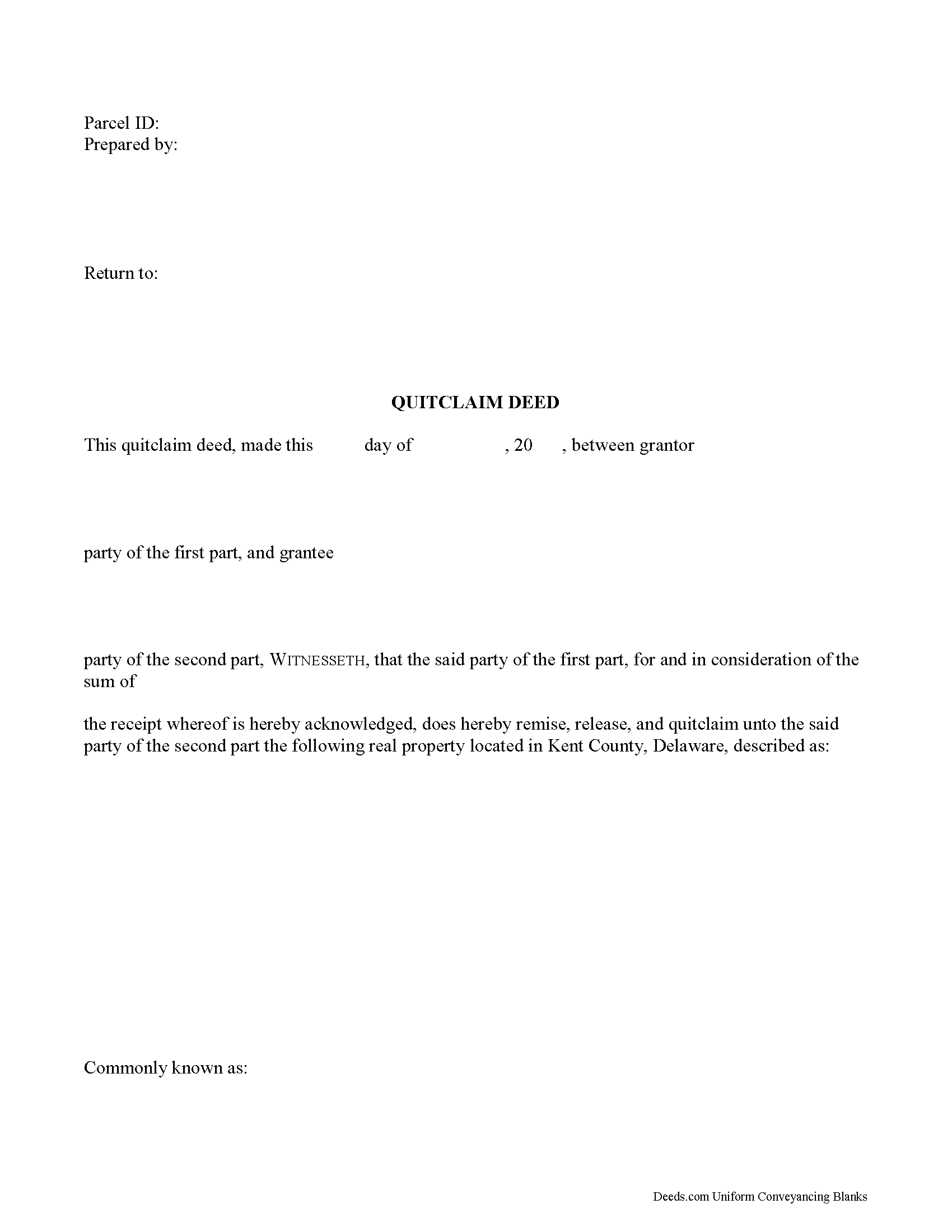Delaware Quitclaim Deed
County Forms
Quitclaim Deed for Real Estate Located in Delaware

Delaware Quitclaim Deed Content Requirements:
25 Del. C. 121 presents the basic statutory form for a deed. This form, however, contains the words "grant and convey," which imply certain warranties of title. A correctly modified quitclaim deed replaces those terms with "quitclaim," thereby excluding warranty protection. In addition, a properly executed quit claim deed requires specific information, including the name and address of both the grantor and grantee; the grantee's vesting choice (how to hold title to the property); a complete legal description of the property to be conveyed; the county tax assessment parcel ID (if available); the date the quit claim deed is executed; the grantor's signature; the signature of one witness who is not named elsewhere in the document (the notary may serve as the witness); and an acknowledgement by a notary public or other official certified to administer oaths. In addition, if the quit claim deed conveys property that is already in the public records, provide the details from the transfer wherein the grantor gained ownership.
Recording:
25 Del. C. 9605 directs the rules for recordation of instruments. Delaware's division into only three counties is unique, and each county demands specific (and different) formats and accompanying documents and tax forms for quit claim deeds submitted for recording. Before finalizing any deed or packet of documents for entry into the public record, review the requirements for the county where the real property is located. There are, however, other details dictated by statute.
Every quit claim deed must be accompanied by an affidavit of residence and gain. Contact the county recorder for this form, as each one is unique. 25 Del. C. 151 requires that all executed deeds, along with their associated documents and forms, must be recorded in the recorder's office for the county wherein such lands are situated because 25 Del. C. 152 explains that recording a deed or instrument in the recorder's office for one county only effects property situated in that county.
Delaware follows a "race" recording statute, which is defined in 25 Del. C. 153. It states that a "deed concerning lands or tenements shall have priority from the time that it is recorded in the proper office without respect to the time that it was signed, sealed and delivered." In plain English, this means that, in the event of multiple conveyances of the same parcel from the same grantor to different grantees, the first deed submitted for recordation and entered into the public record will convey title over other deeds, regardless of when they were executed (signed). Although 25 Del. C. 154 explains that there is no statutory time limit within which a deed must be recorded, recording quit claim deeds as soon as possible protects the interest of all interested parties.